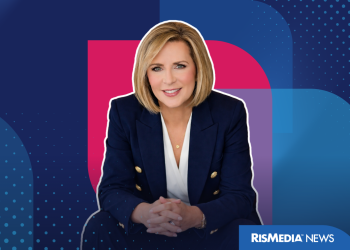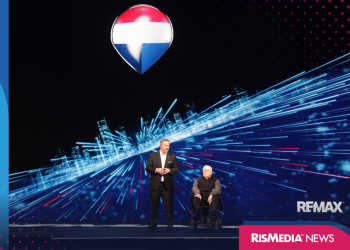The Federal Reserve’s next Federal Open Market Committee (FOMC), where they decide the direction of monetary policy, will be held Oct. 28 – 29. In the meantime, members of the Federal Reserve are keeping busy with public appearances.
At the Invest in America forum hosted by CNBC, Fed Governor Stephen Miran sat down for a half-hour moderated Q&A. The conversation largely covered topics Miran, who was nominated to the Fed by President Donald Trump earlier this year, has made to the media since taking office.
Voting at the September FOMC, Miran pushed for a large rate cut of 50 basis points, rather than the final 25 basis points. During this talk, he again voiced his support for lowering interest rates, specifically pointing to escalating trade tensions with China as a new factor that should encourage the Fed to cut rates.
“I had been operating under the assumption that the uncertainty (over trade policy) had dissipated, and therefore I felt more sanguine about some aspects of the growth outlook. Now, potentially, this is back because the Chinese are reneging on deals that were already made,” Miran claimed during the talk.
When asked when he believes annual inflation will finally reach the Fed’s goal of 2%, he projected that to occur in a year and a half.
Miran once more noted his forecast that there is housing disinflation to come, due to the administration’s changes in immigration enforcement. After noting that the “moribund” current state of the housing market in part stems from high mortgage rates over the course of 2025, Miran was asked about how, when interest rates were cut last year, mortgage rates did not fall. He pivoted to discussing how the “neutral” rate, the point where monetary policy is neither restricting nor promoting growth, has shifted since last year (when he did not support rate cuts).
Another topic during the chat was Fed independence, which Miran has previously and continued to maintain should continue. Miran, who previously served as chair of the President’s Council of Economic Advisors, has only taken an unpaid leave of absence from that position; he’s claimed because the remainder of the Fed term he is serving is only four months. If confirmed to a longer term on the Fed, he’s promised to resign. During this talk, he pointed to how long and tiring the confirmation process can be as one reason for his decision.
However, this move has attracted criticism (as was noted during the talk) from those who claim Miran is not sufficiently independent from the executive branch and the president’s wishes on monetary policy. During the talk, Miran was asked about Fed colleague Lisa Cook, who the President attempted to fire after she was accused of mortgage fraud; Cook has denied this and has been allowed to remain on the Fed board until the Supreme Court reviews the case. Miran said he was not qualified to discuss the matter.
Christopher Waller weighs in on AI’s impacts on productivity
That same day at a separate event—DC Fintech Week—Fed Governor Christopher Waller spoke about the projected impacts of artificial intelligence (AI) technology on economic productivity.
Waller, who read from prepared remarks before a brief Q&A, was largely supportive of embracing the technology and whatever disruptions it might bring. He added that the truth of the tech’s impact will likely land “probably somewhere in the middle” between the “doomers” and the utopian optimists.
A theme Waller returned to during the speech was that technological change and disruptions from it are a contest—he invoked previous technological leaps such as electricity, automobiles and the internet to demonstrate how tech can upend previously secure jobs while creating new ones and improving quality of life.
“When Gutenberg invented the printing press, he took away the Catholic Church’s power over the written word and democratized it,” Waller said. “Much like Gutenberg’s printing press, AI will likely democratize expertise. Tools that once required specialized training are already becoming accessible to a much wider range of people. We see this happening with software coding already.”
The “challenge,” Waller continued, is the same as any innovation: “There is often a time inconsistency between the costs and the benefits. The disruptions come first; the benefits take time.”
Waller pointed to the “democratization (of) expertise” as something that will disadvantage college educated workers in the labor market, and that the very presence of AI will influence companies’ recruitment strategies. However, he also cited a study by the New York Fed that businesses are largely using AI for retraining employees rather than layoffs.
“AI is moving faster than previous waves of innovation,” Waller concluded. “That velocity means both the disruptions and the benefits will arrive sooner. The challenge is to keep pace—to help workers and firms adjust so the gains in efficiency translate into higher real wages and sustained growth across the economy. For policymakers, we must let the disruption occur and trust that the long-run benefits will exceed any short-run costs.”
To watch Miran and Waller’s speeches in full, click here and here.












